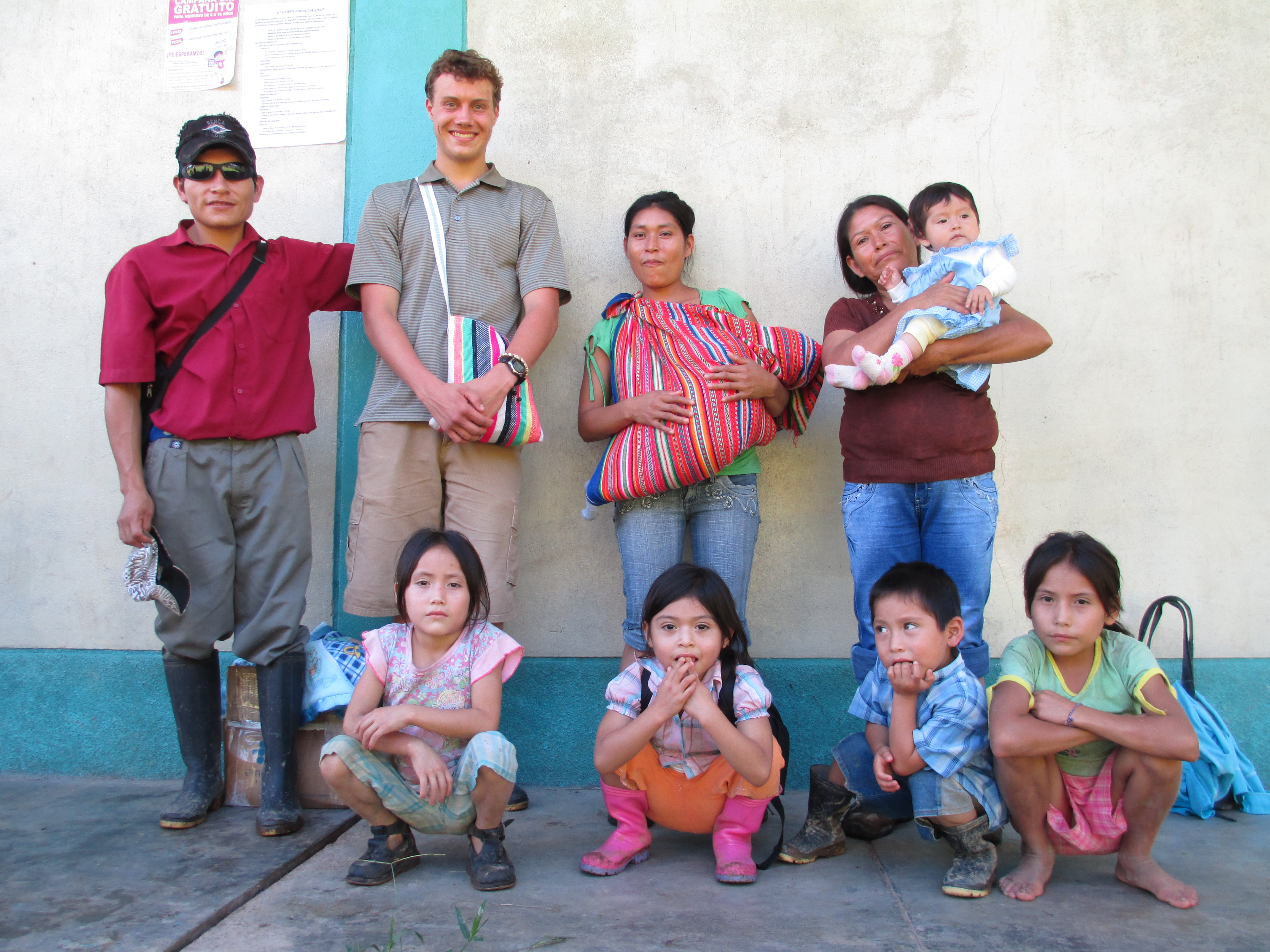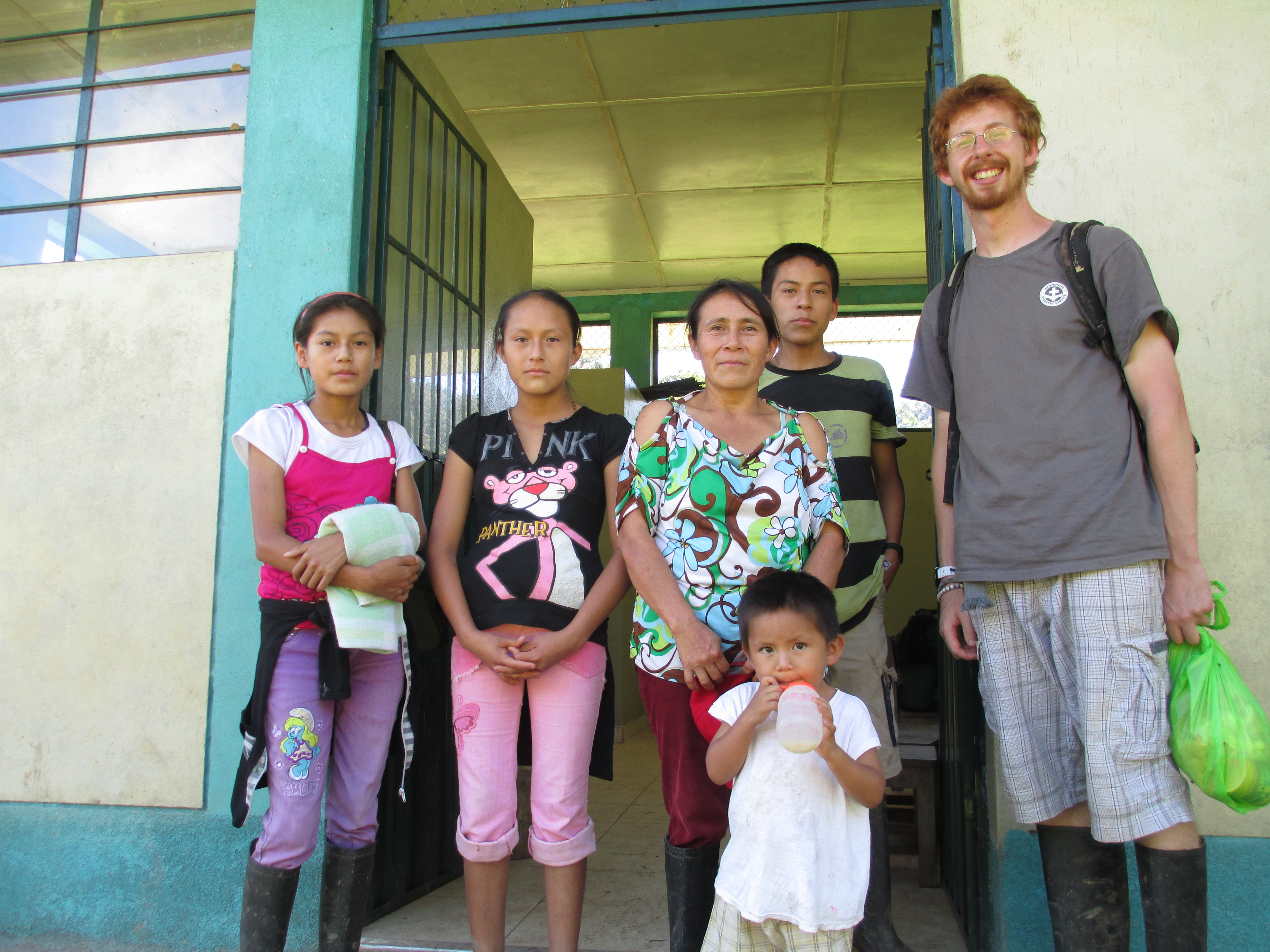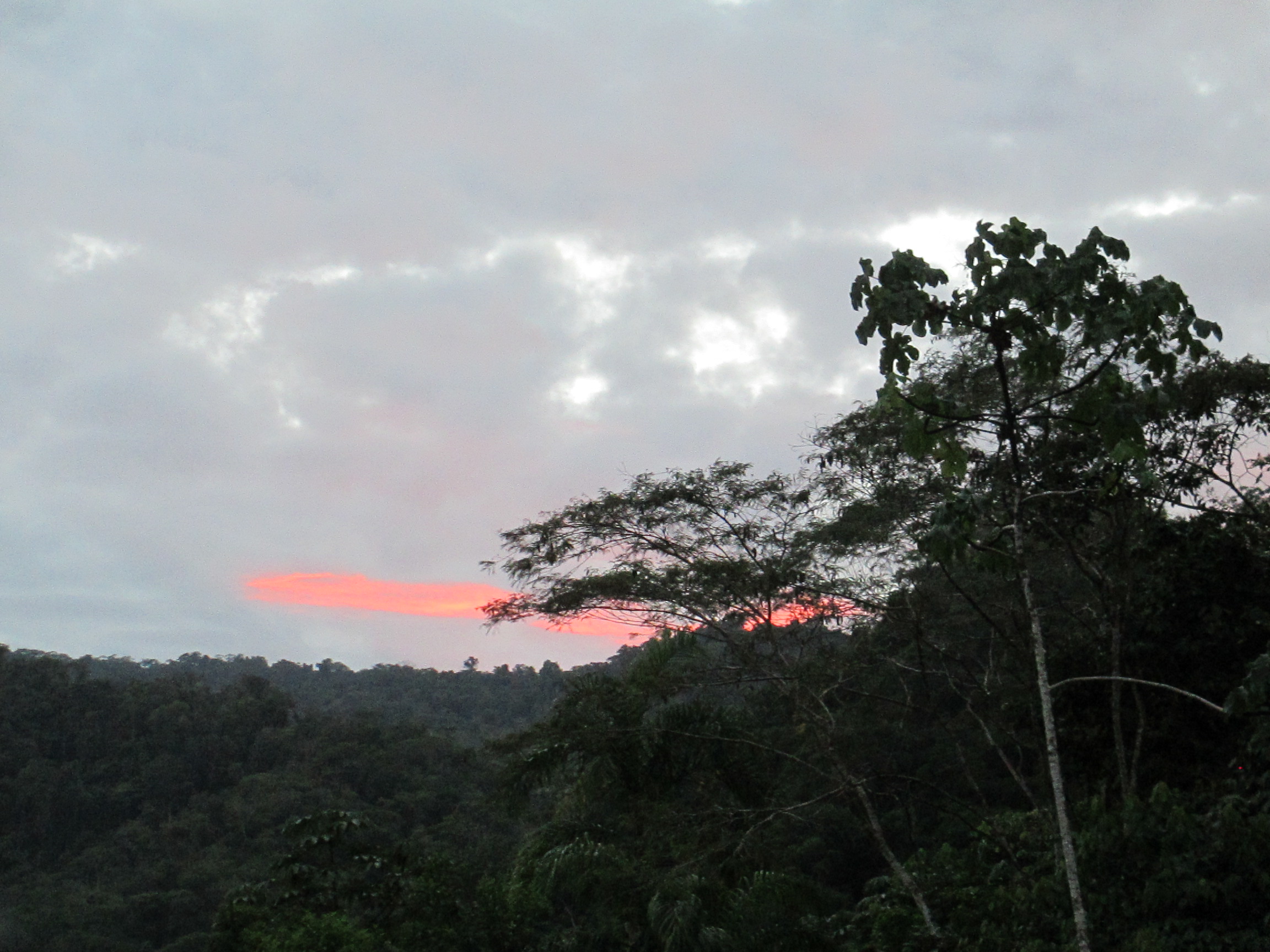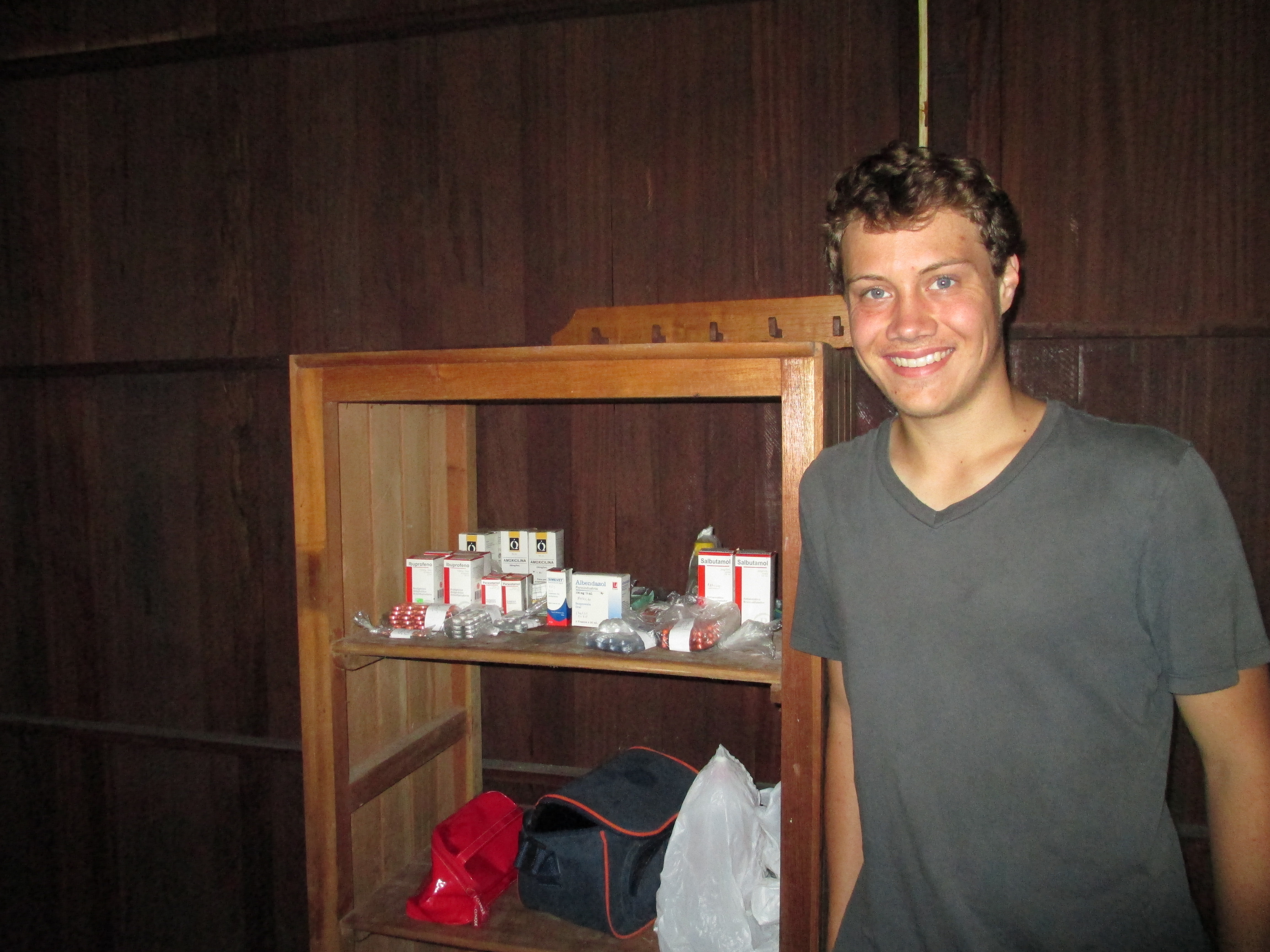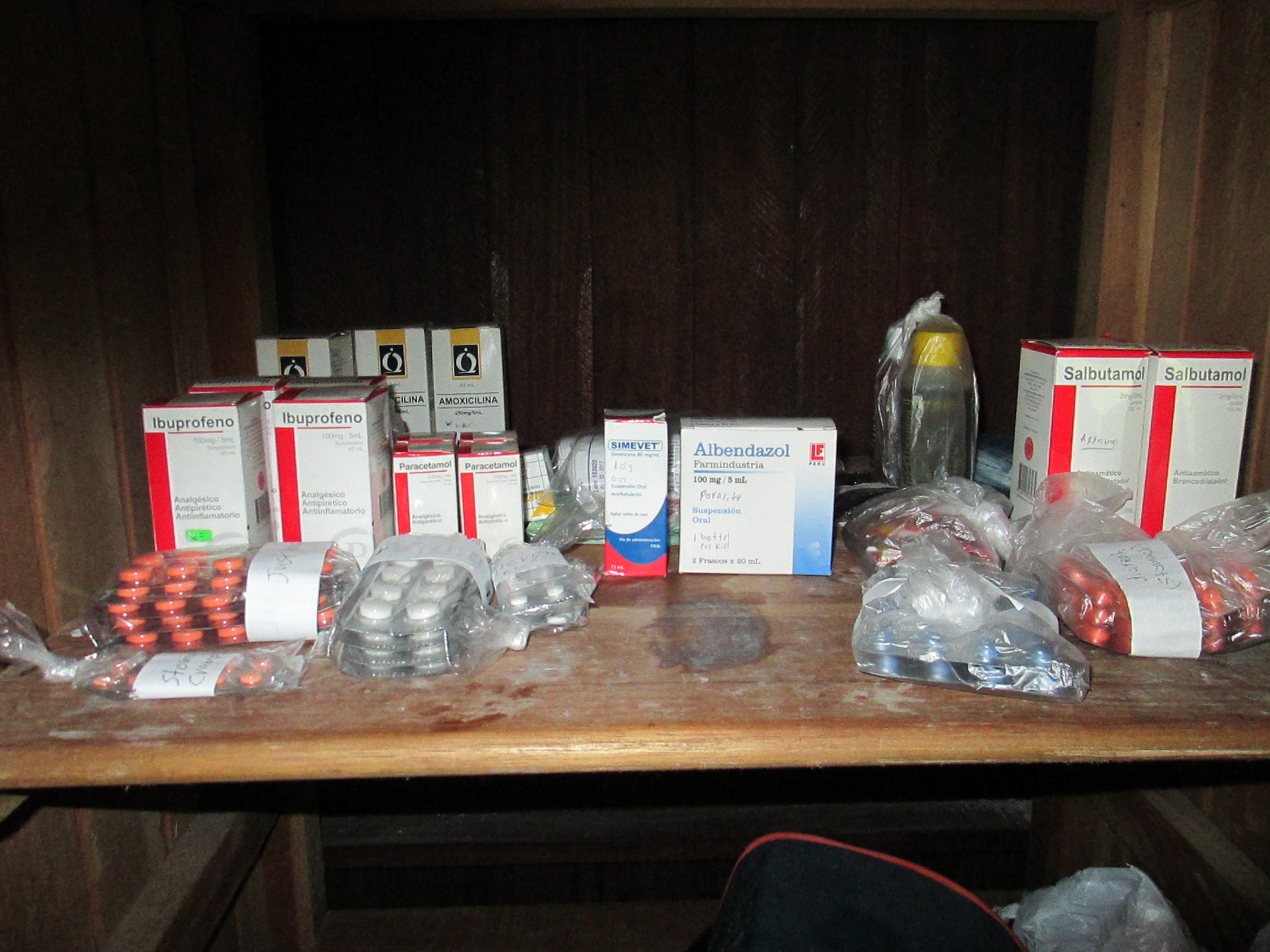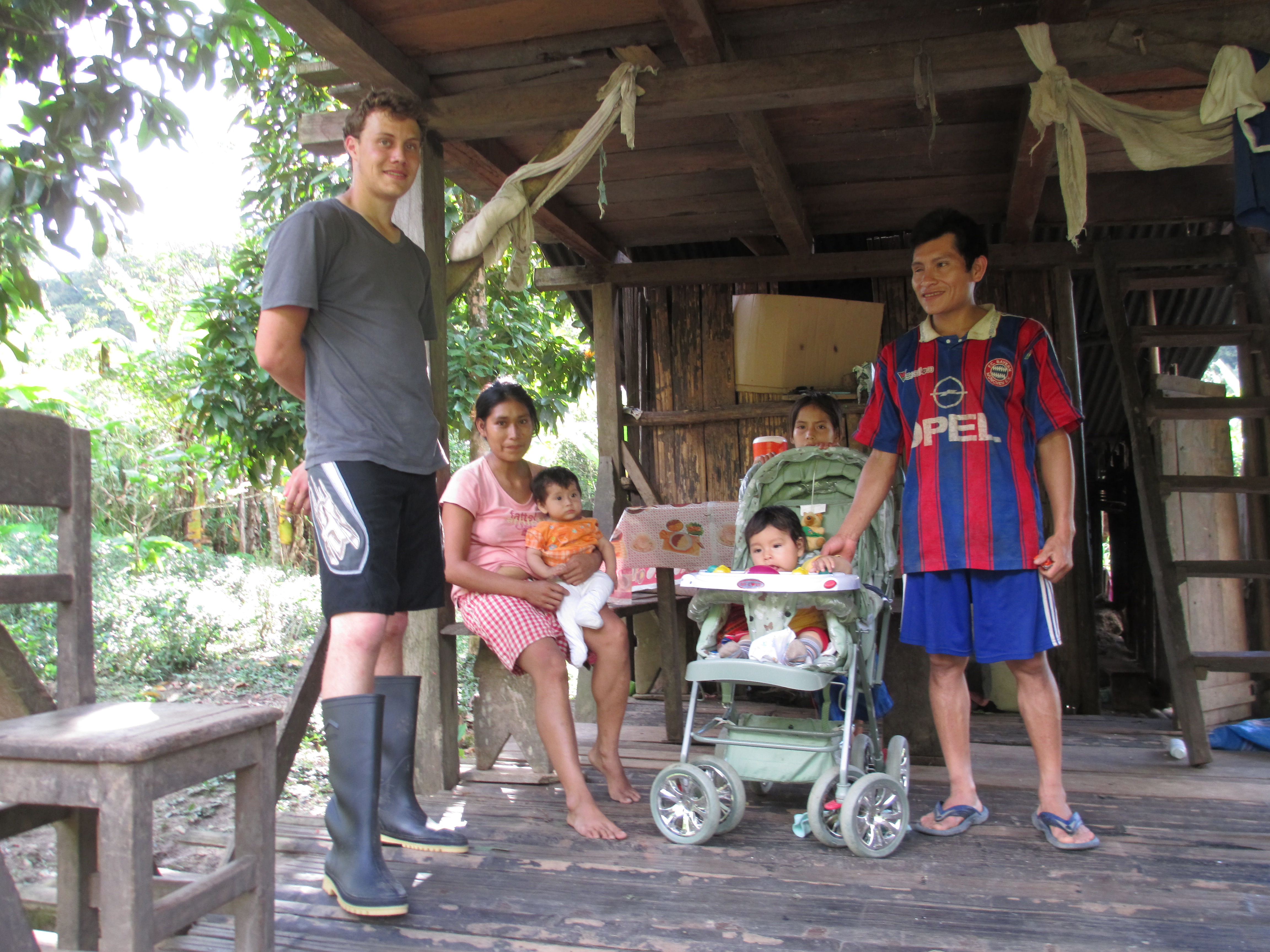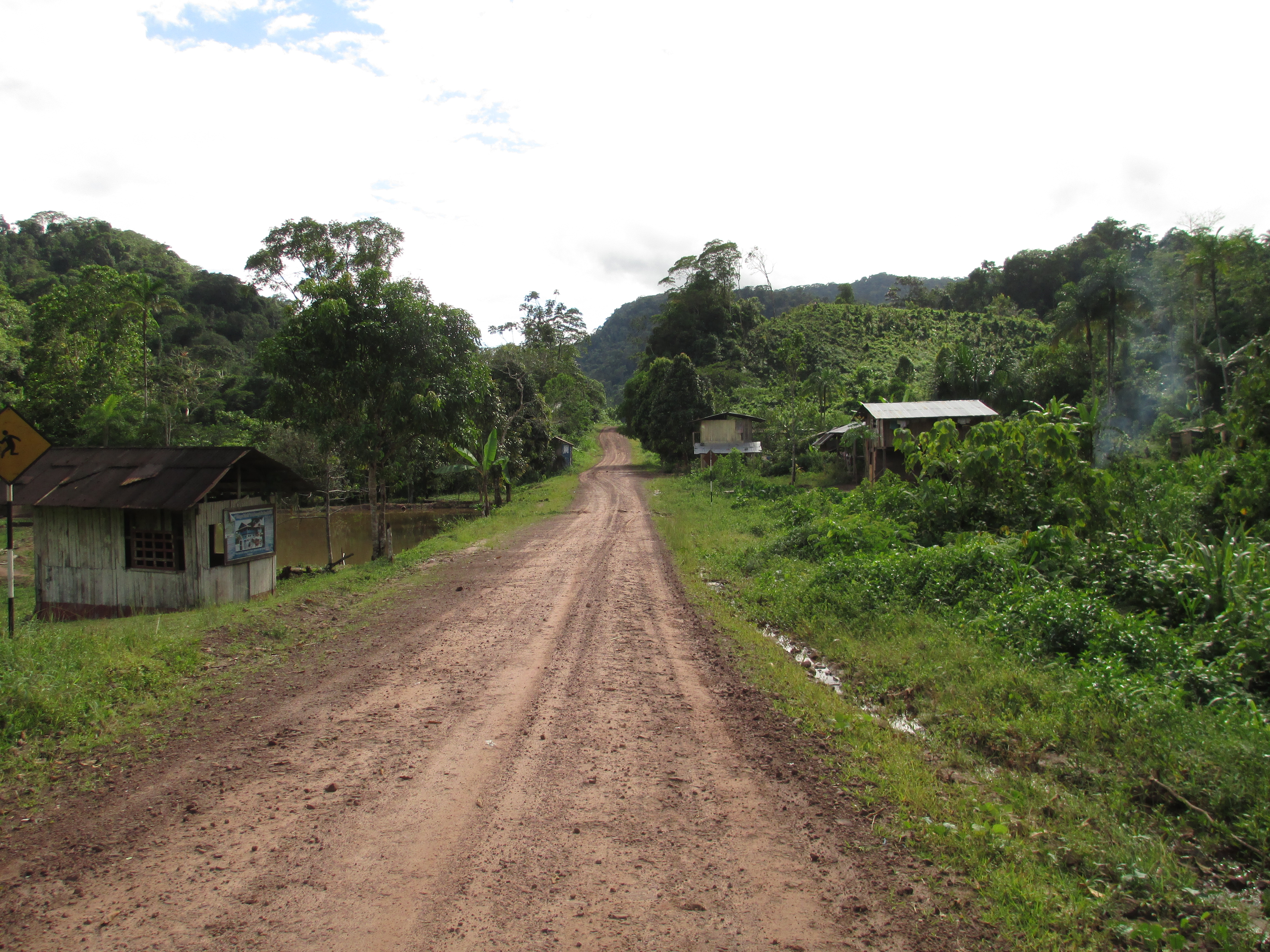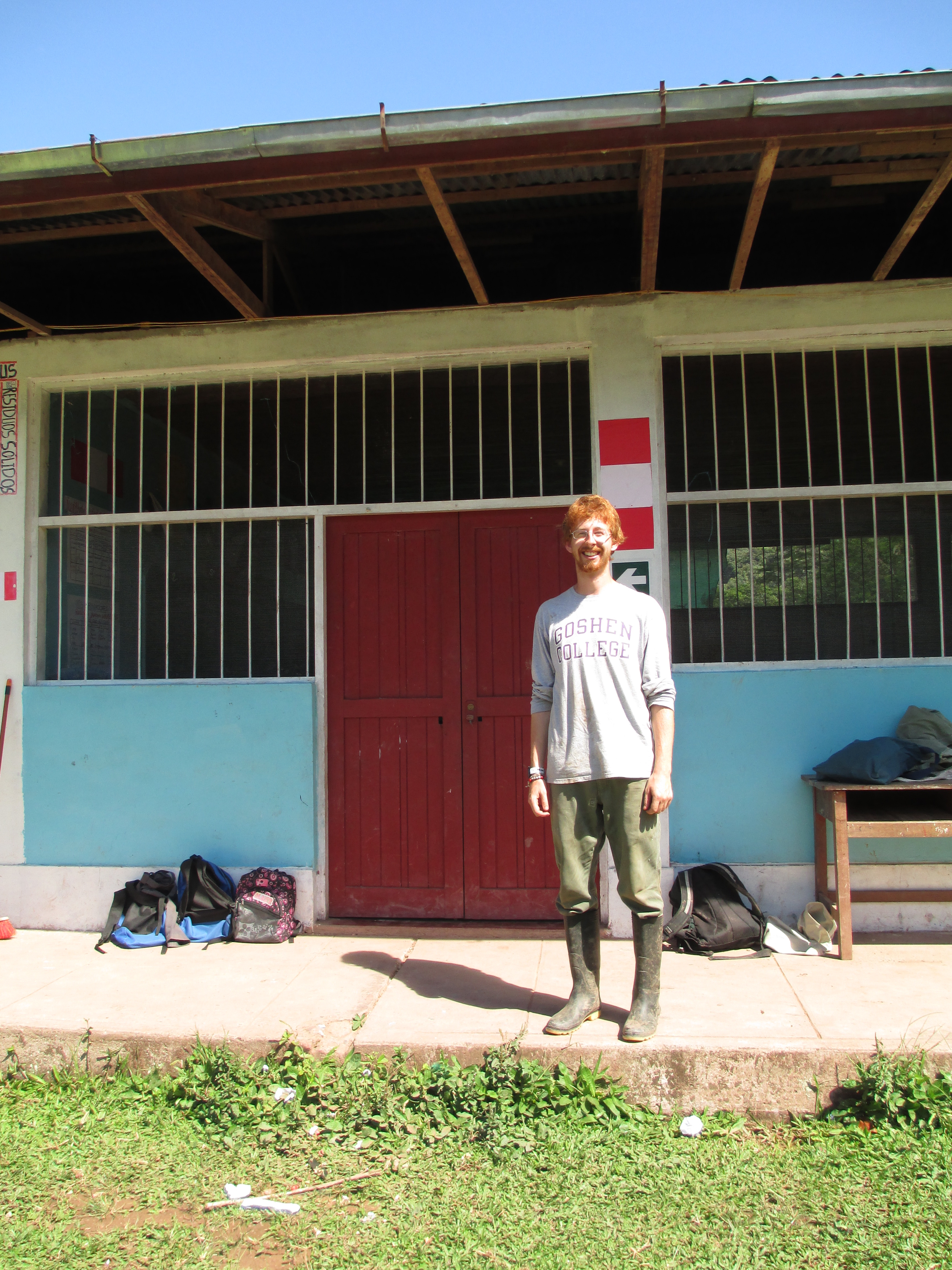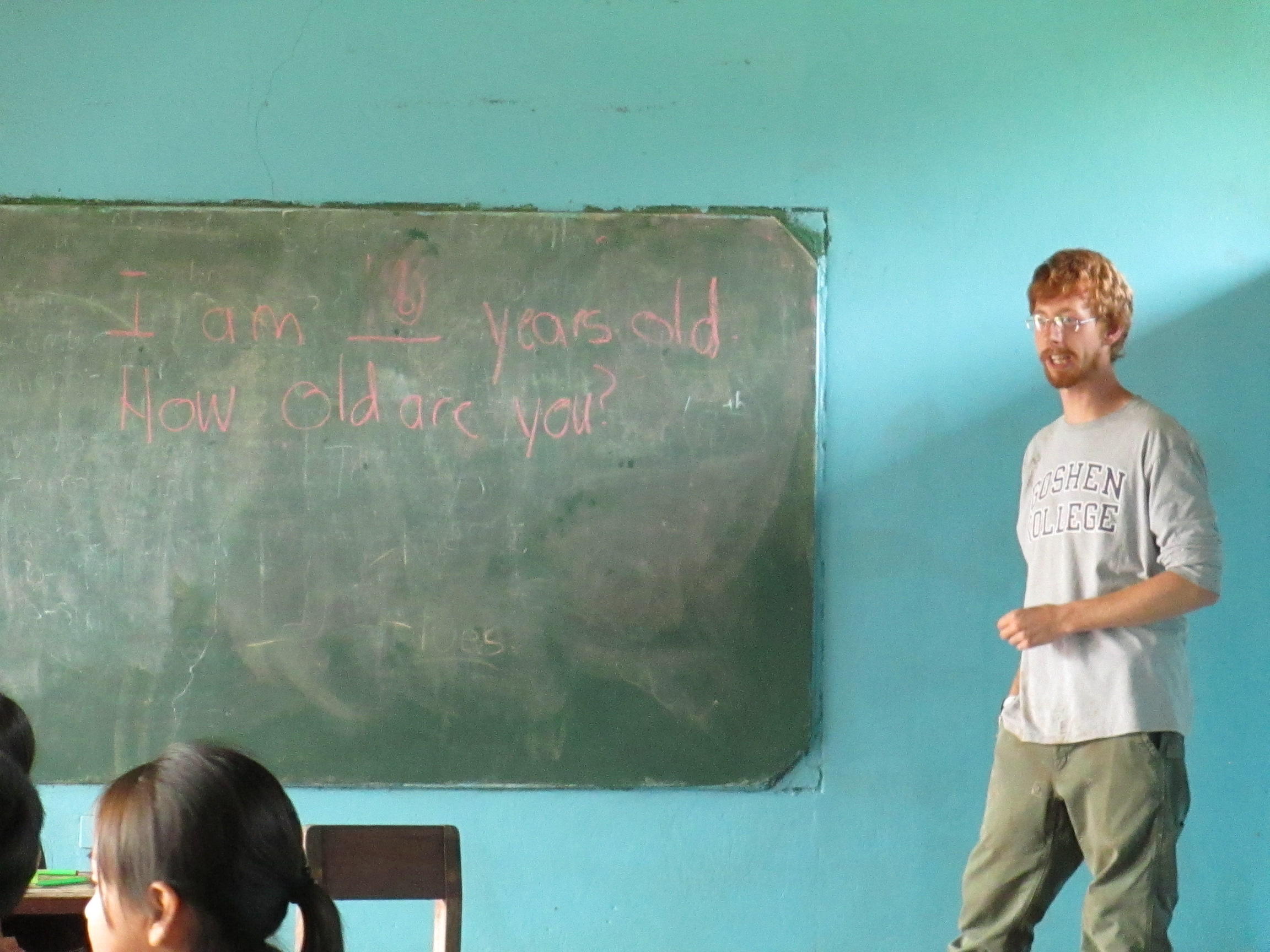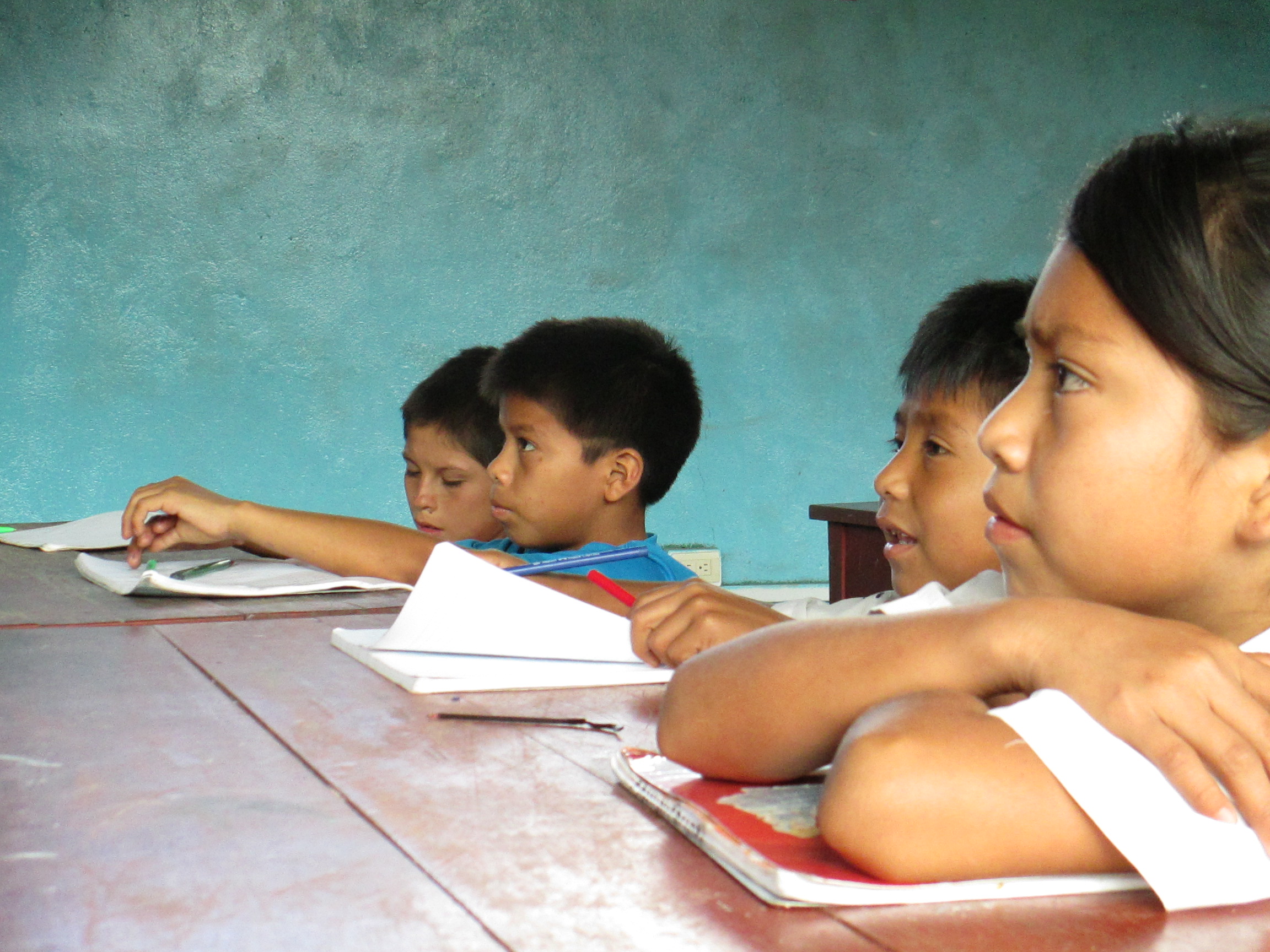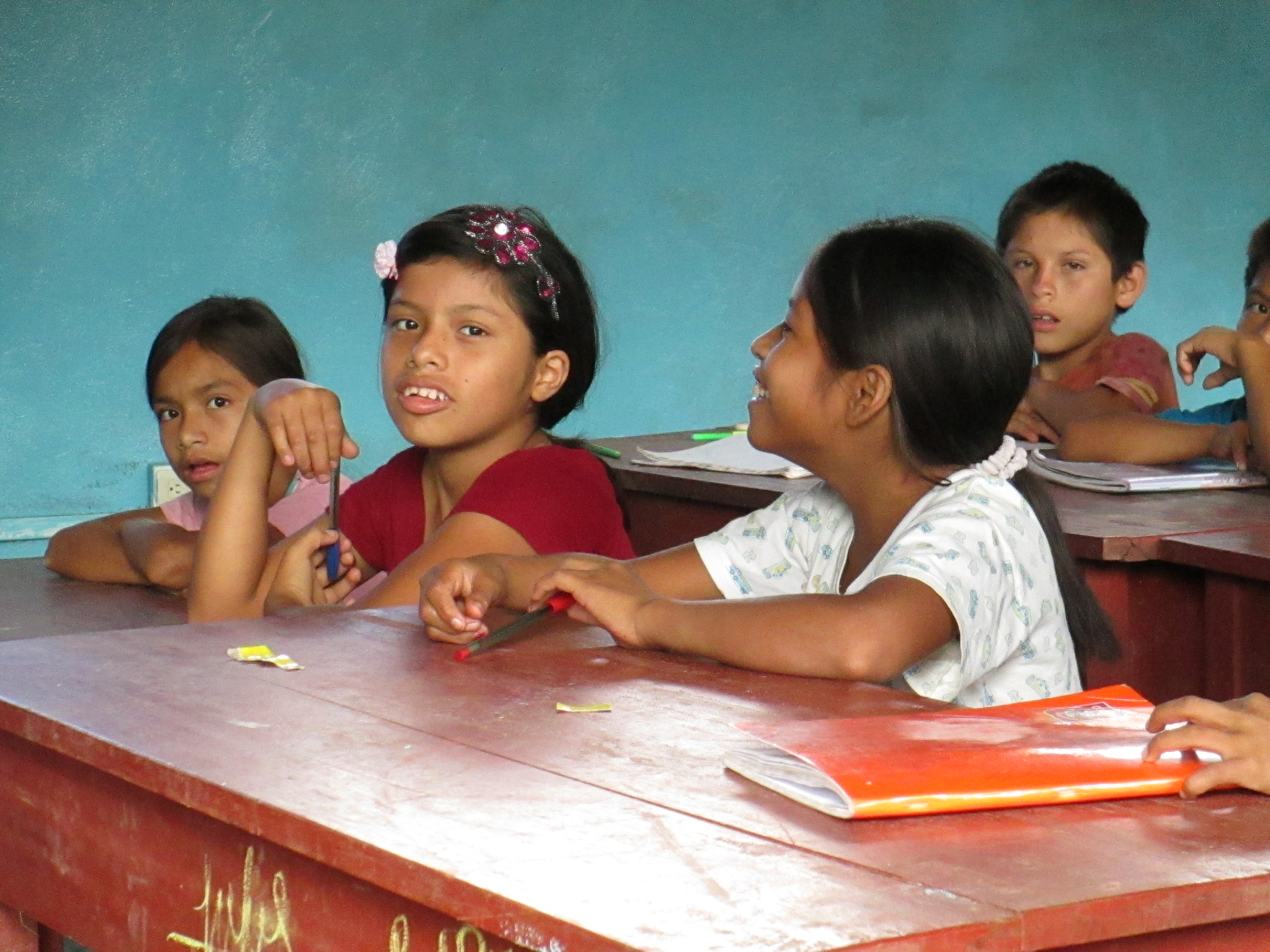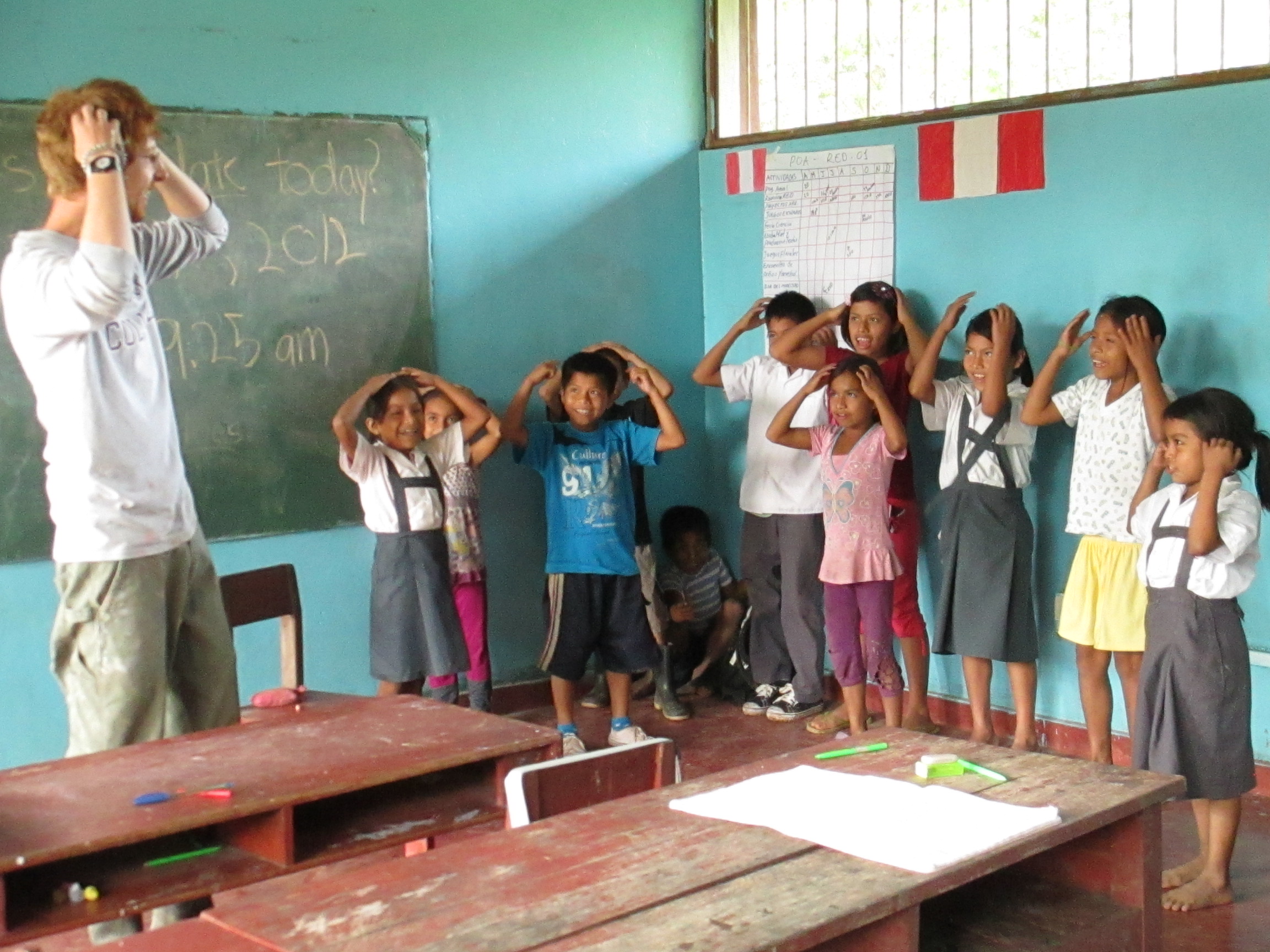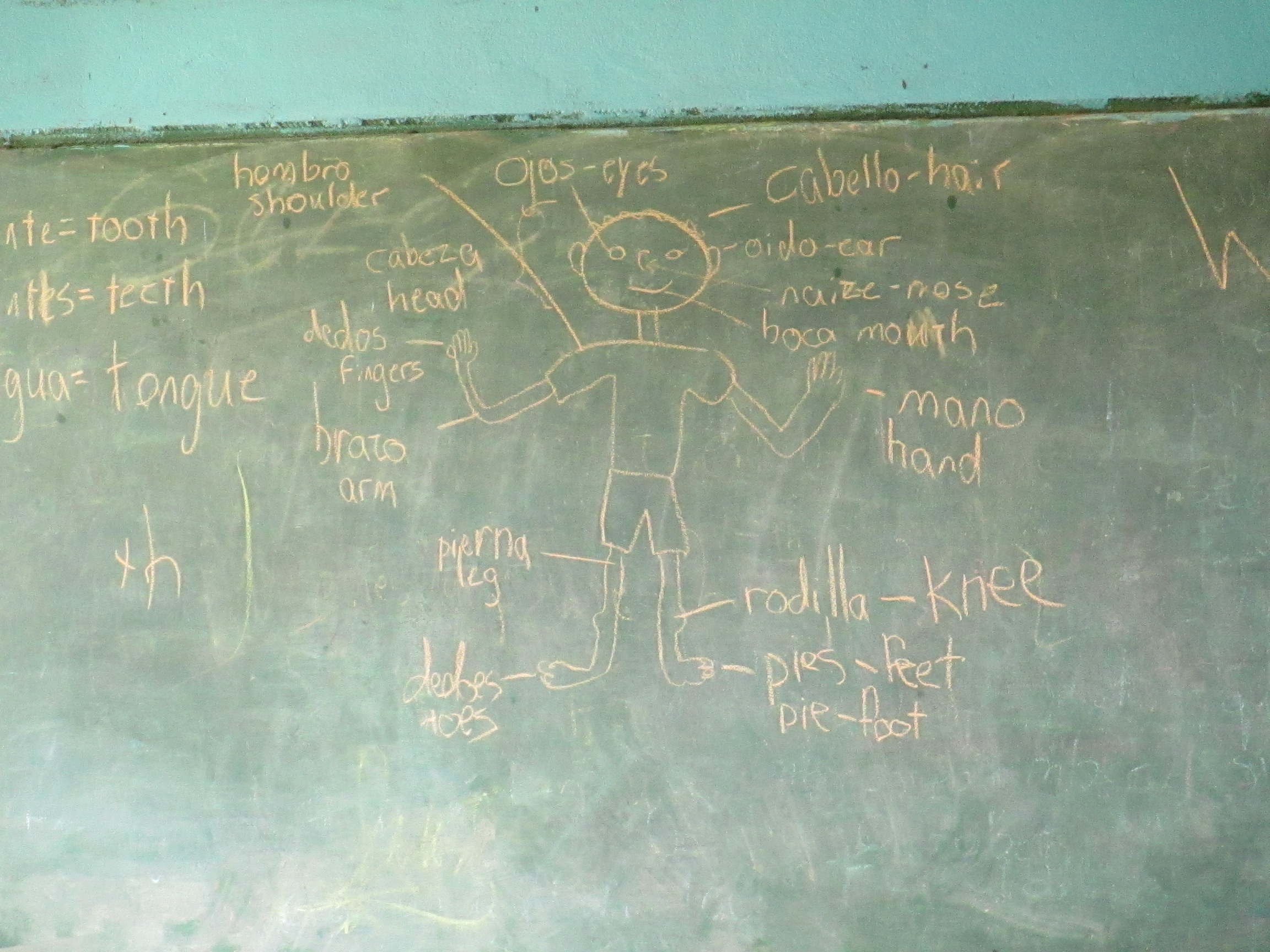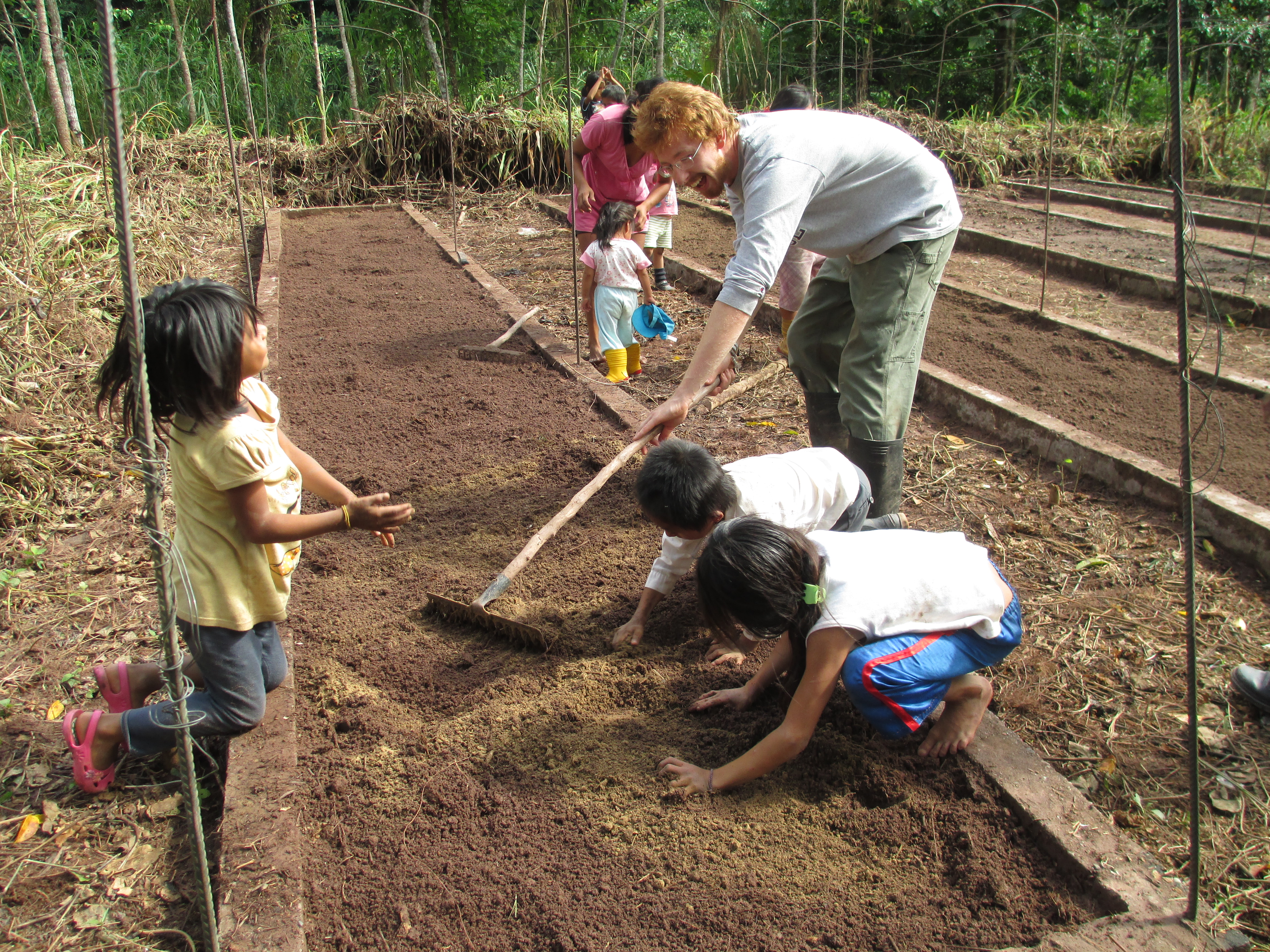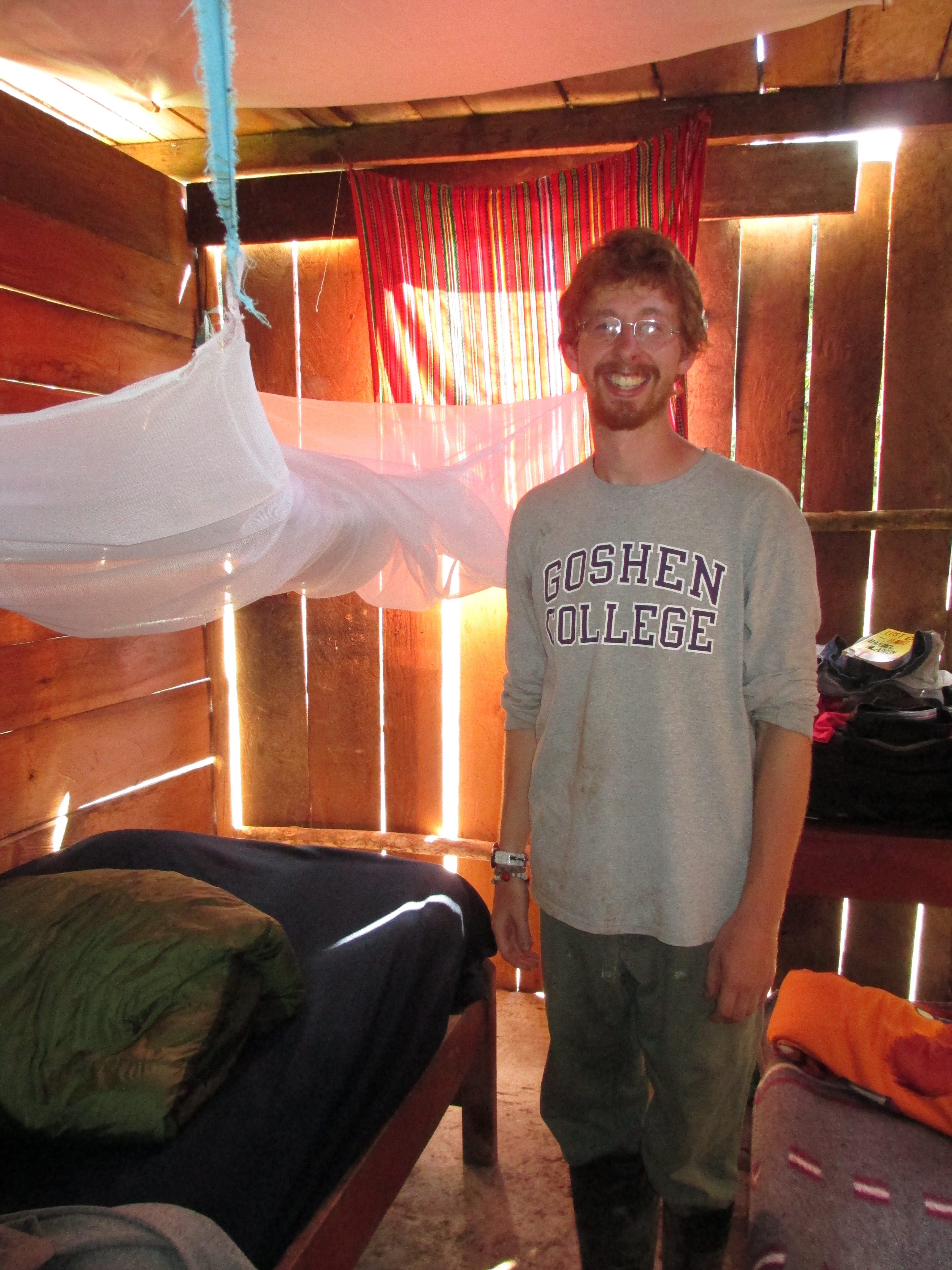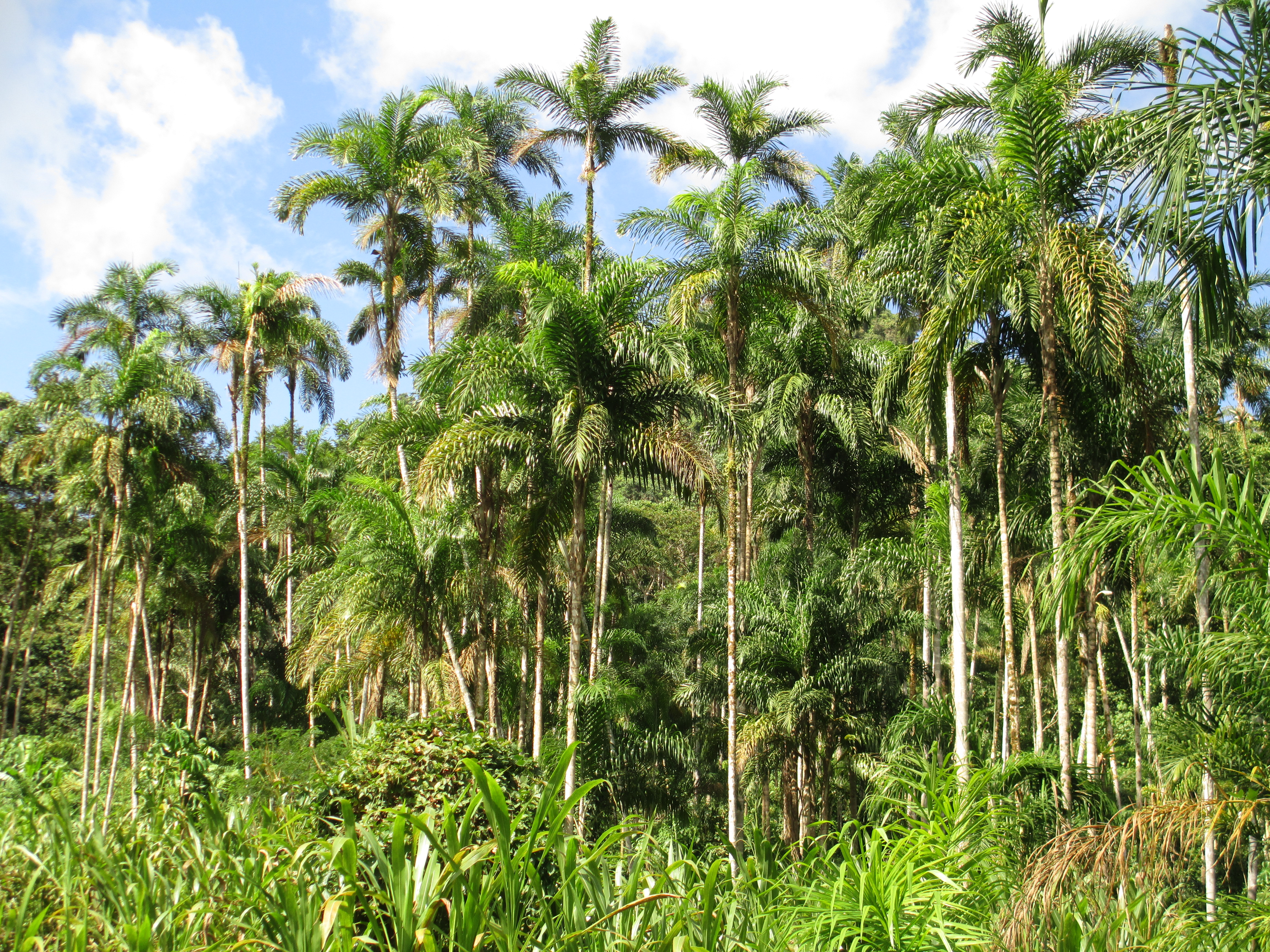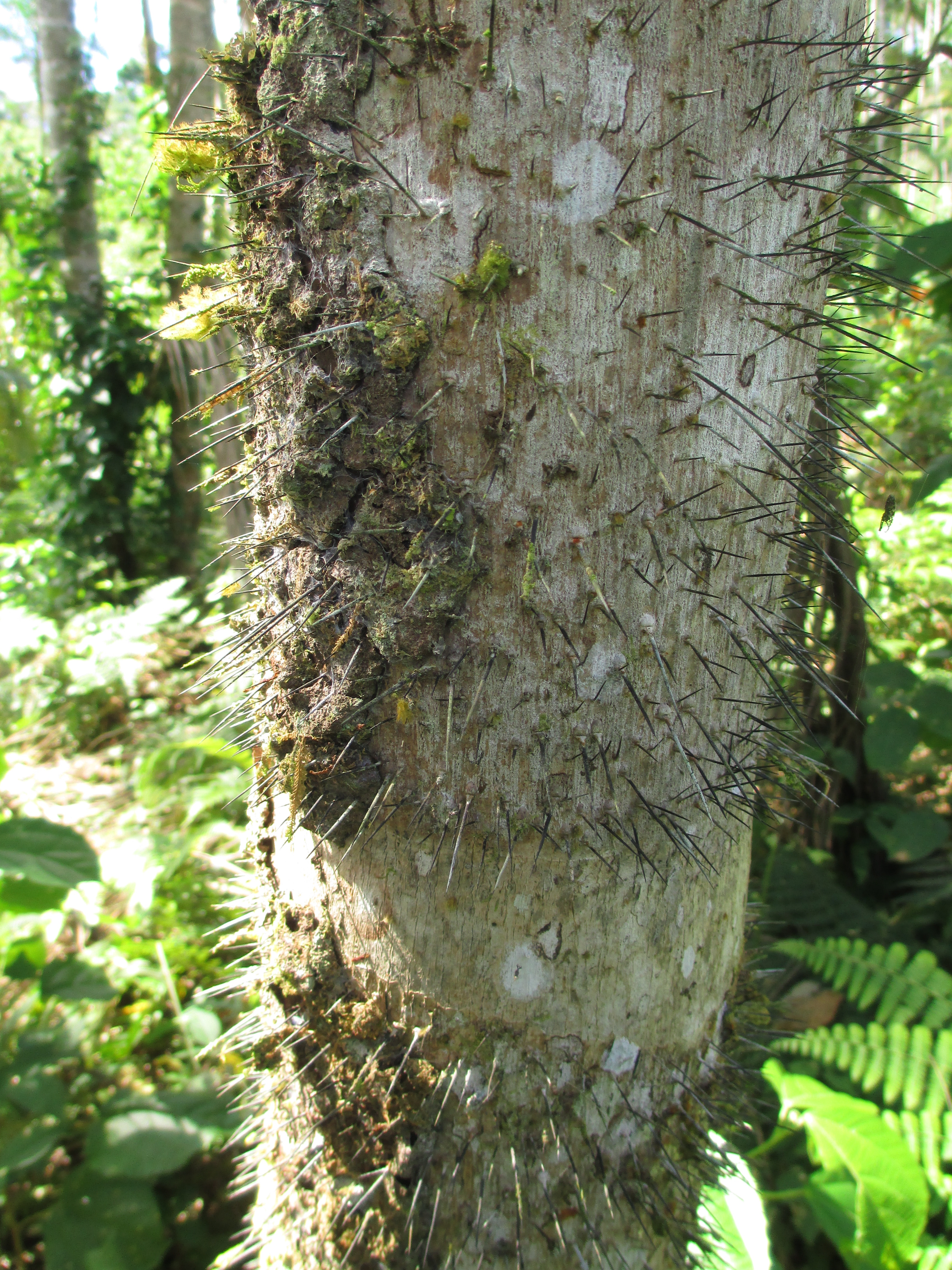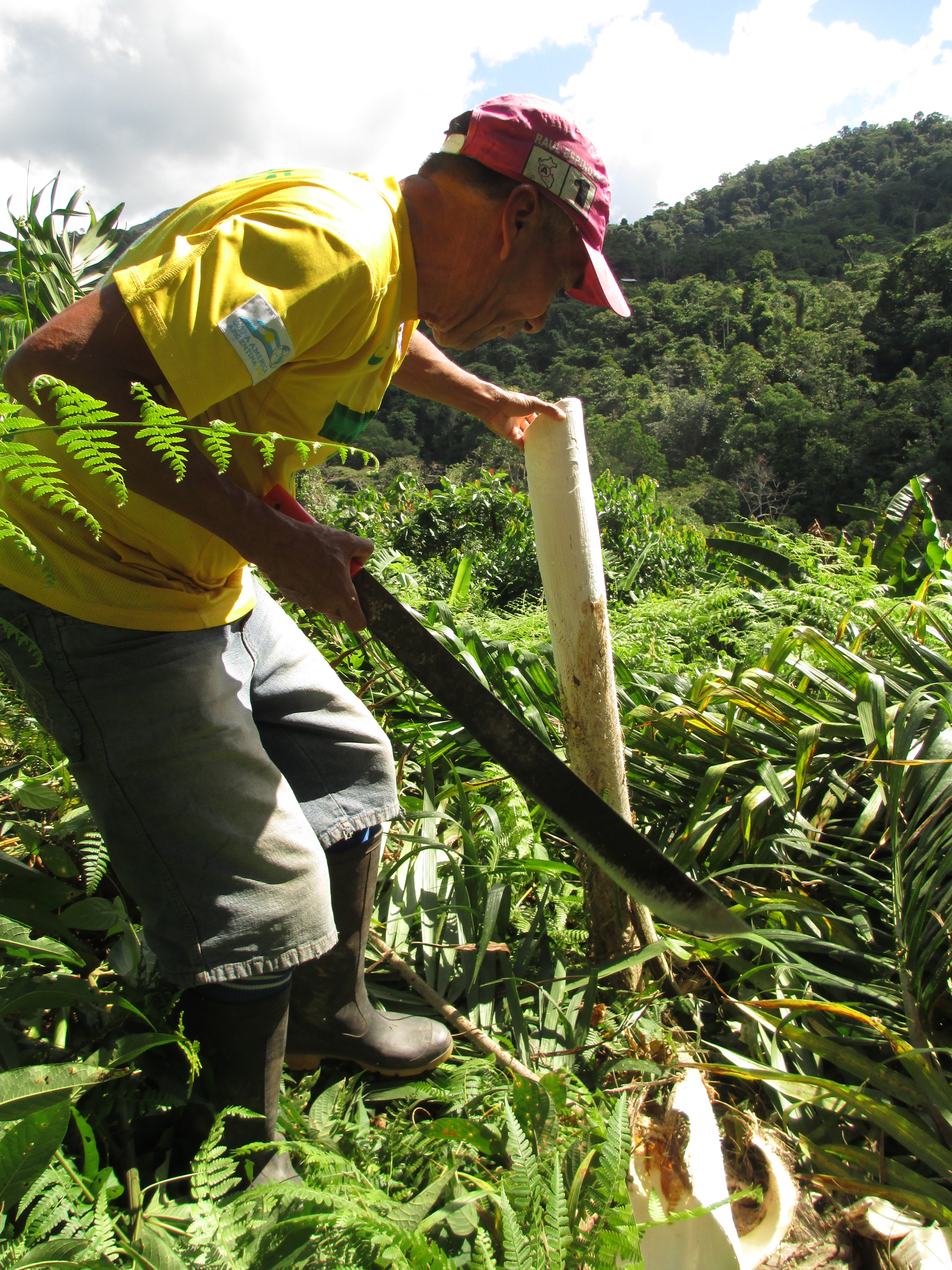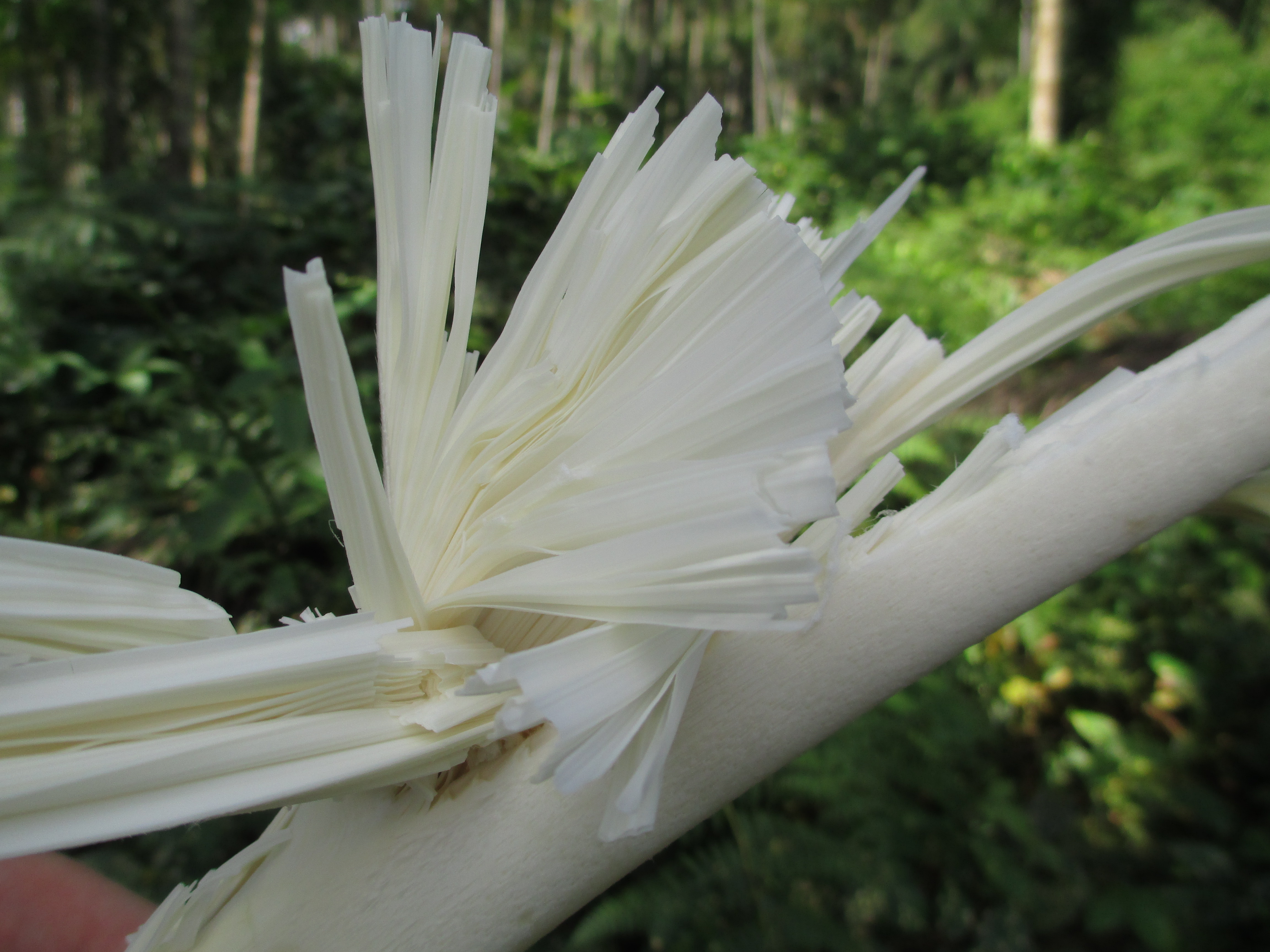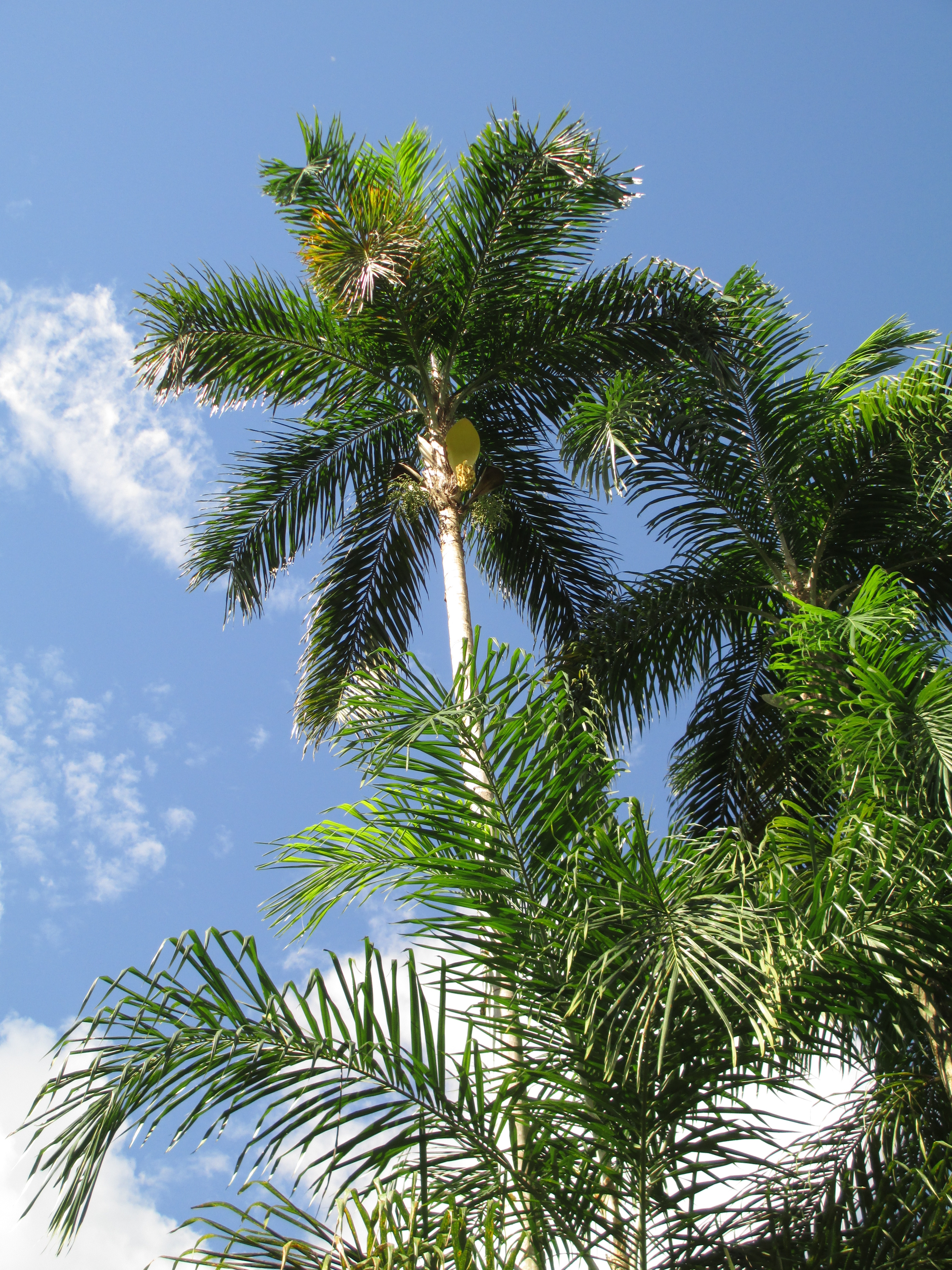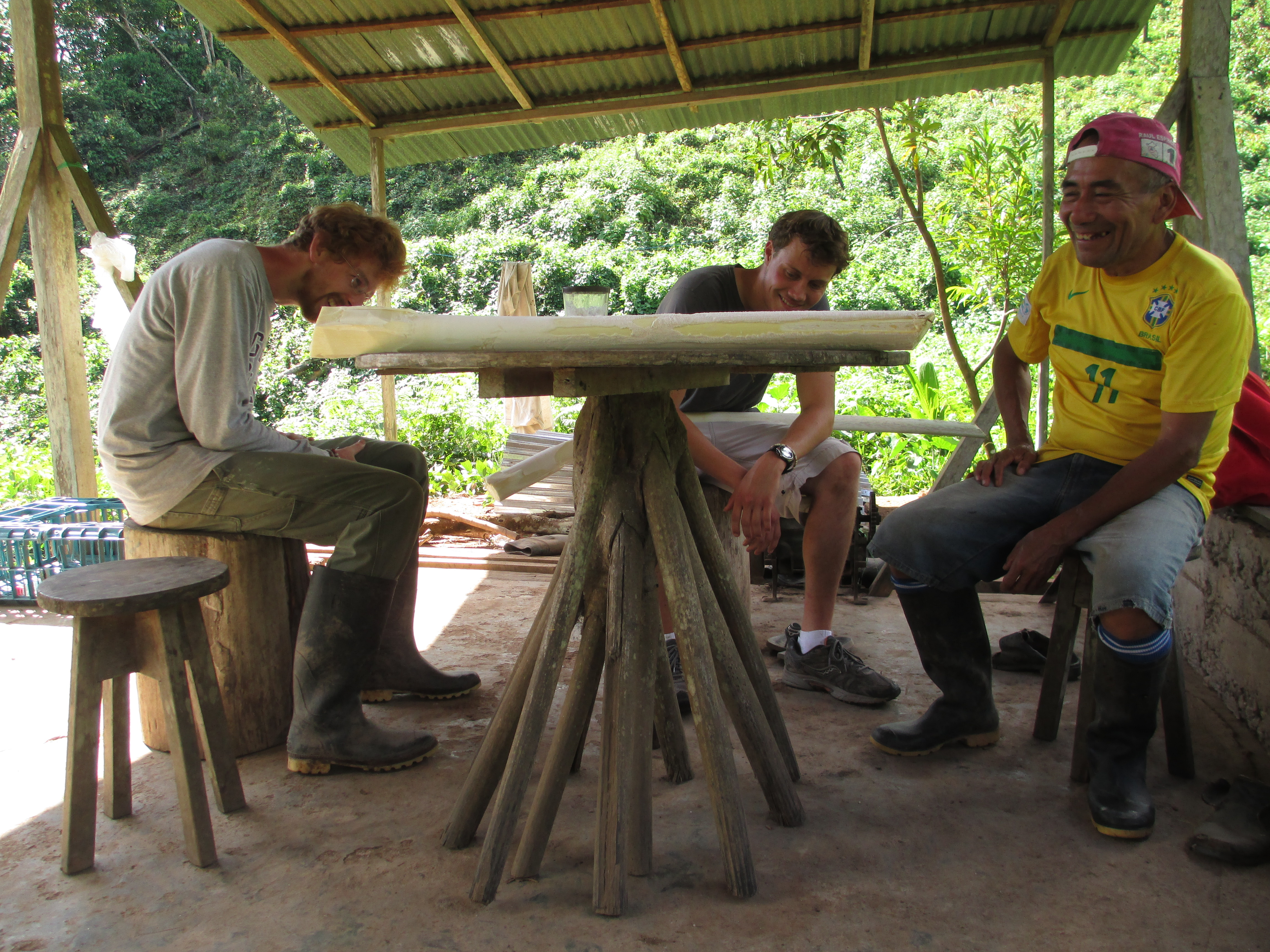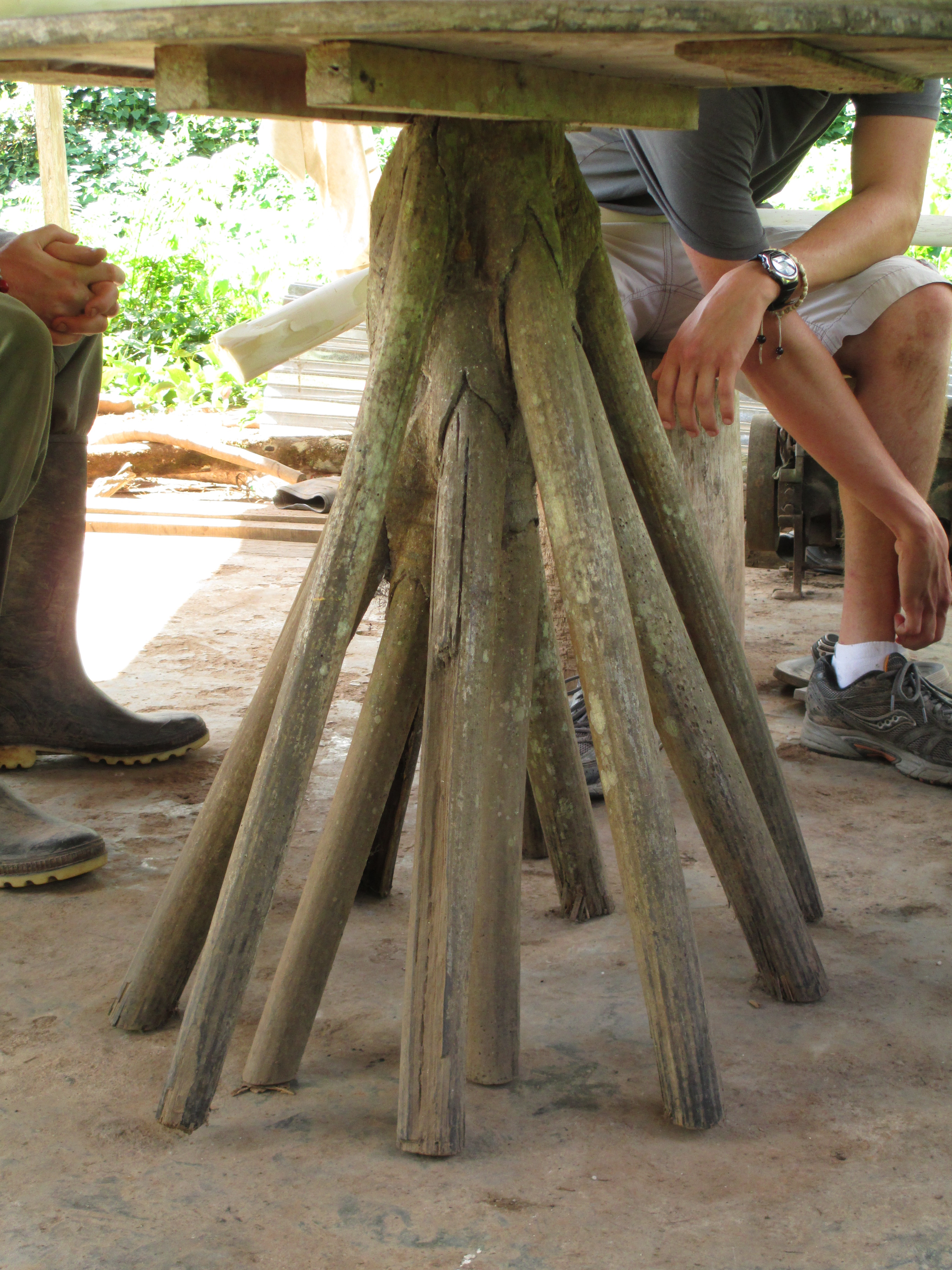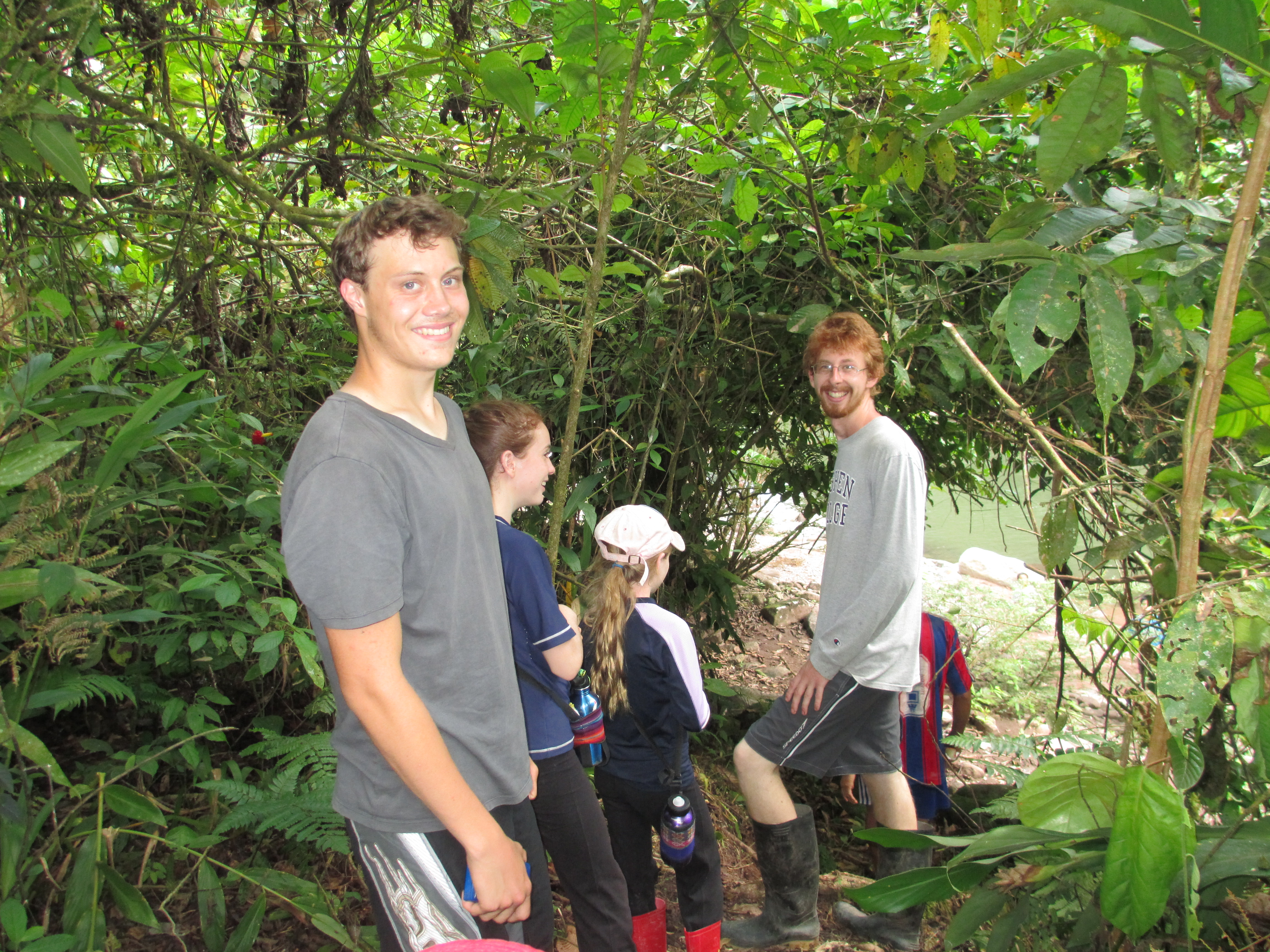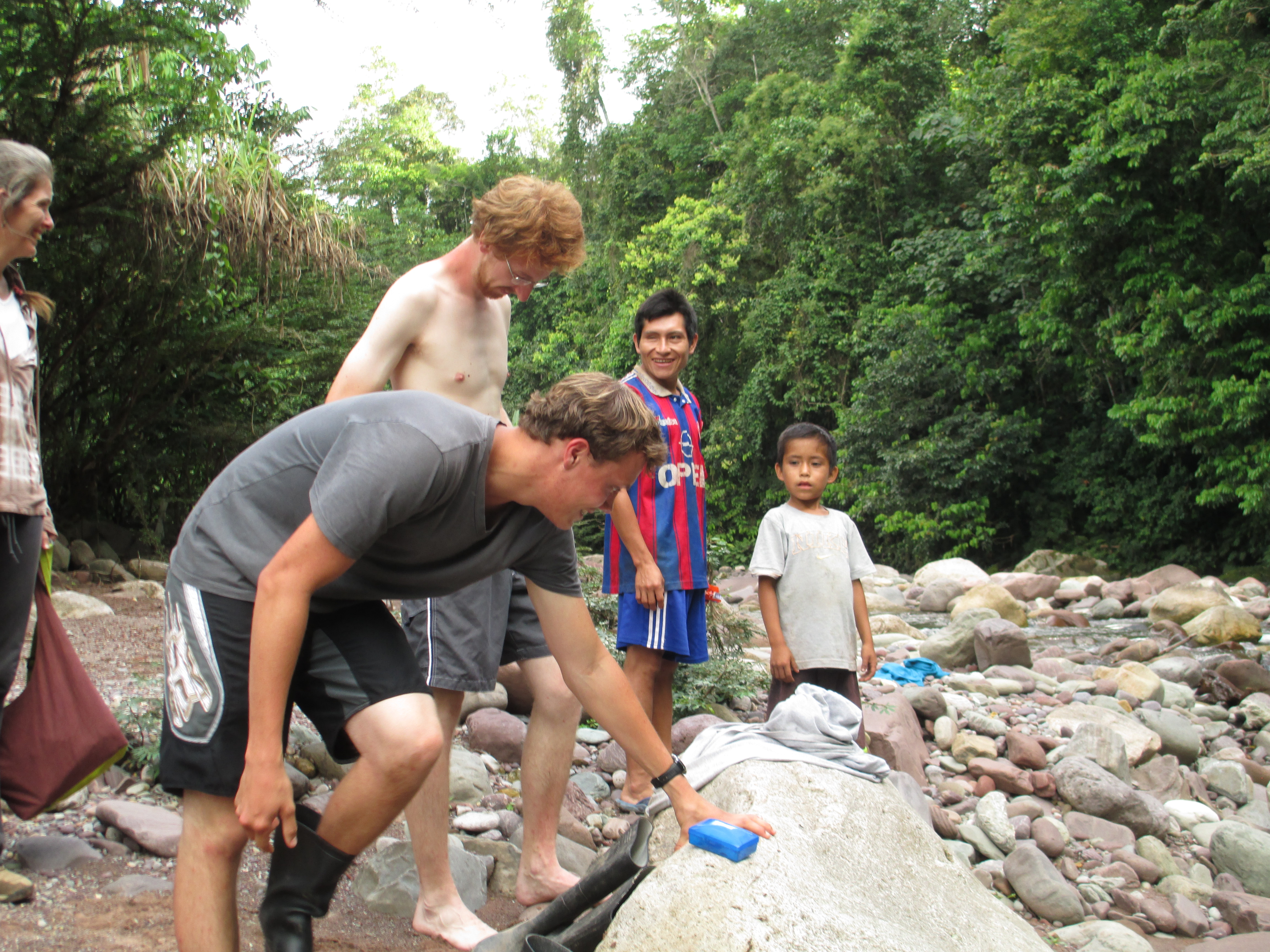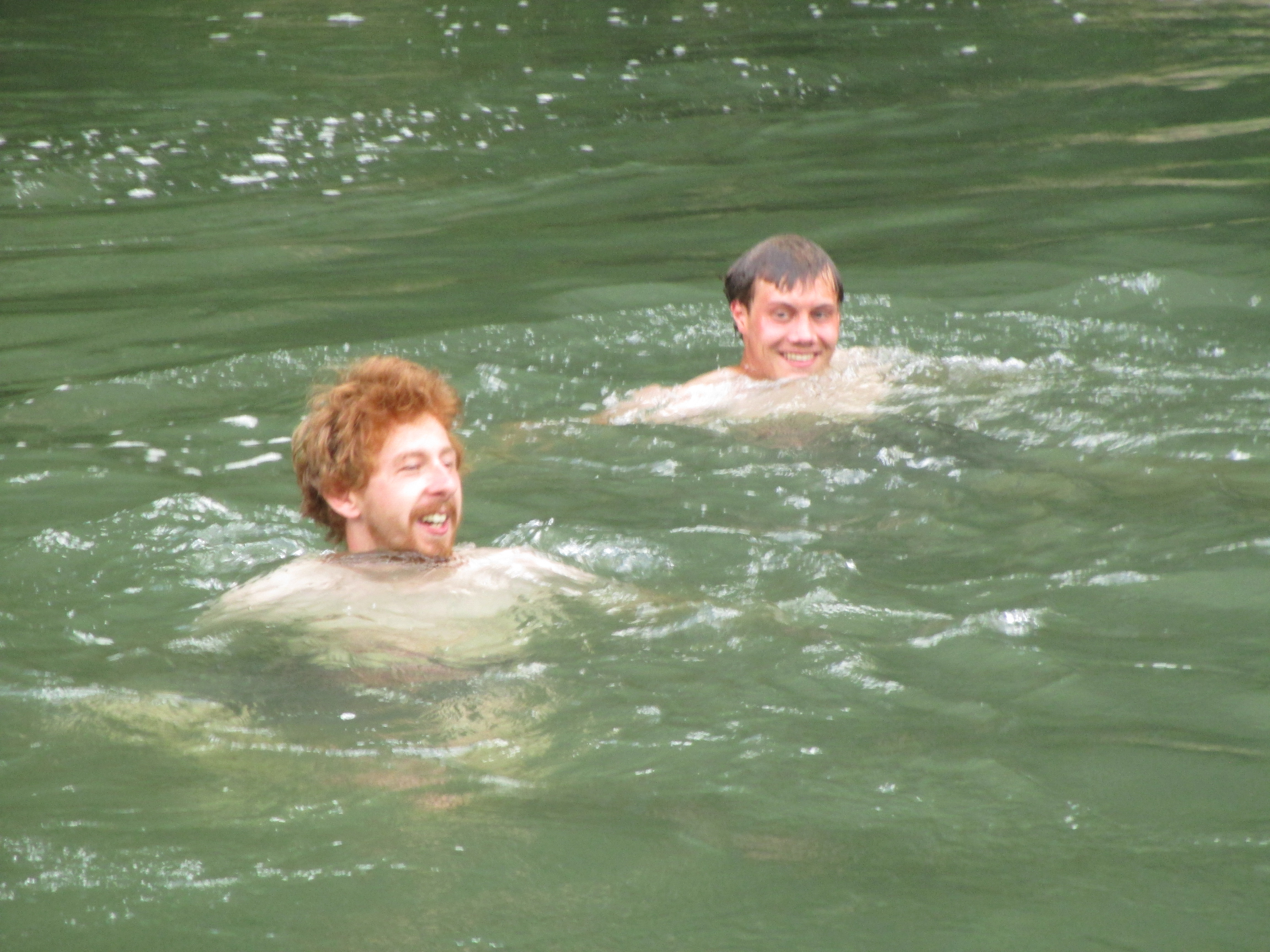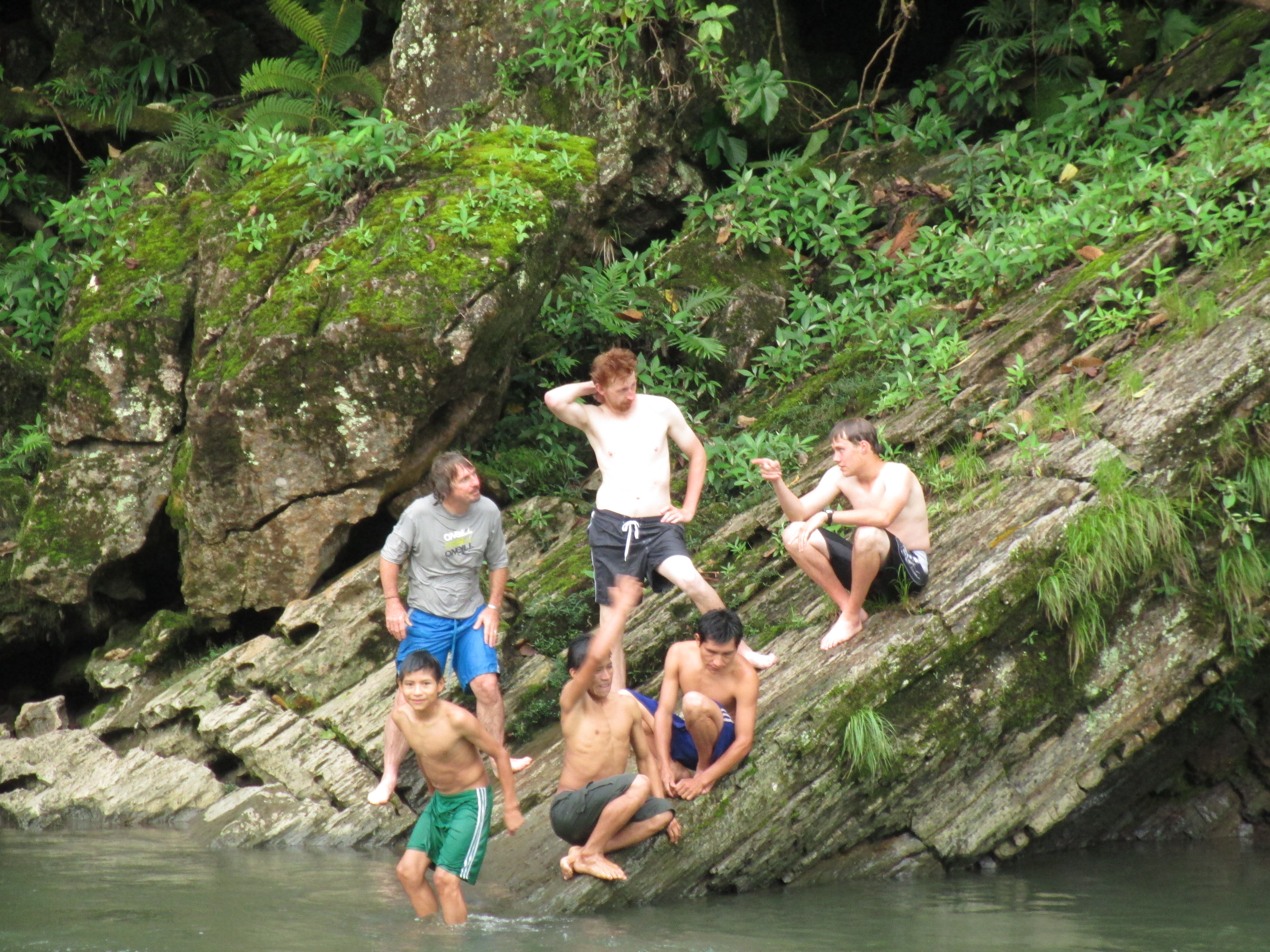Service in San Francisco
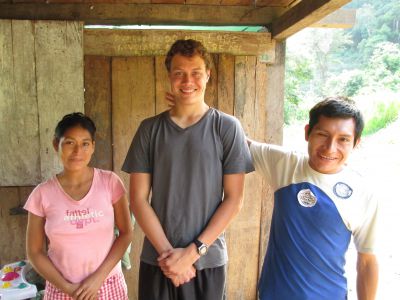
San Francisco and Azulis are sister villages with a combined population of 447 inhabitants. There are close cultural, familial and social ties between these two native Yanesha communities. On the first day of our visit to Azulis, in fact, we met families from San Francisco who had traveled there for the baptism of three adult believers in the Yanesha Bible Evangelical Church. Two of the families we met that day are hosting our students, Will and Darin, and after meeting them briefly in Azulis we made plans to meet up later at their homes in San Francisco.
Before leaving for service, Will learned that the objective of his volunteer work would be to promote human health by providing basic medical services. Will’s specific assignment is to assist a Yanesha health promoter trained in nursing who works at a newly-created medical post in the community. Native leaders can leverage Will’s presence as a North American to promote awareness of the importance of medical services in the community, encouraging the regional government to dedicate more resources to the village. As one of the first foreign visitors to live in this community, Will is expected to honor their traditional values, integrity and use of medicinal plants while improving access to modern medicine available at the medical post. He spends each morning at the post, keeping track of the medicines and assisting patients when they visit.
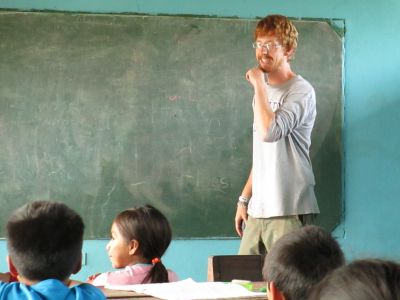
The objective of Darin’s work is to help community members embrace traditional practices and customs while also developing modern skills to enable them to protect their cultural identity and the biodiversity of the surrounding forests. Darin’s assignment is to teach English to children in a bilingual (Spanish-Yanesha) primary school and assist the main teacher with other activities. During recess Darin plays soccer with a loyal following of boys and girls. And after classes he works with students and teachers in the garden behind the school. Lacking resources, the teachers are hoping to sell coffee and vegetables from the school garden to pay for educational materials and needed supplies.
Both Will and Darin are taking well to village life. The pace is slow, people are relaxed, relationships are more important than efficiency or productivity. Each day they spend time with their families, conversing with their parents, uncles and aunts and playing with their brothers, sisters and neighborhood children. They might fish or help out in their family’s chacra (farm) to provide food for the dinner table. Worship services are held in a mix of Yanesha and Spanish at the tiny church at the edge of town. And at the end of each day each of them walks down to the river with their brothers, cousins or uncles to bathe in the pristine water and take in the beauty all around them.
